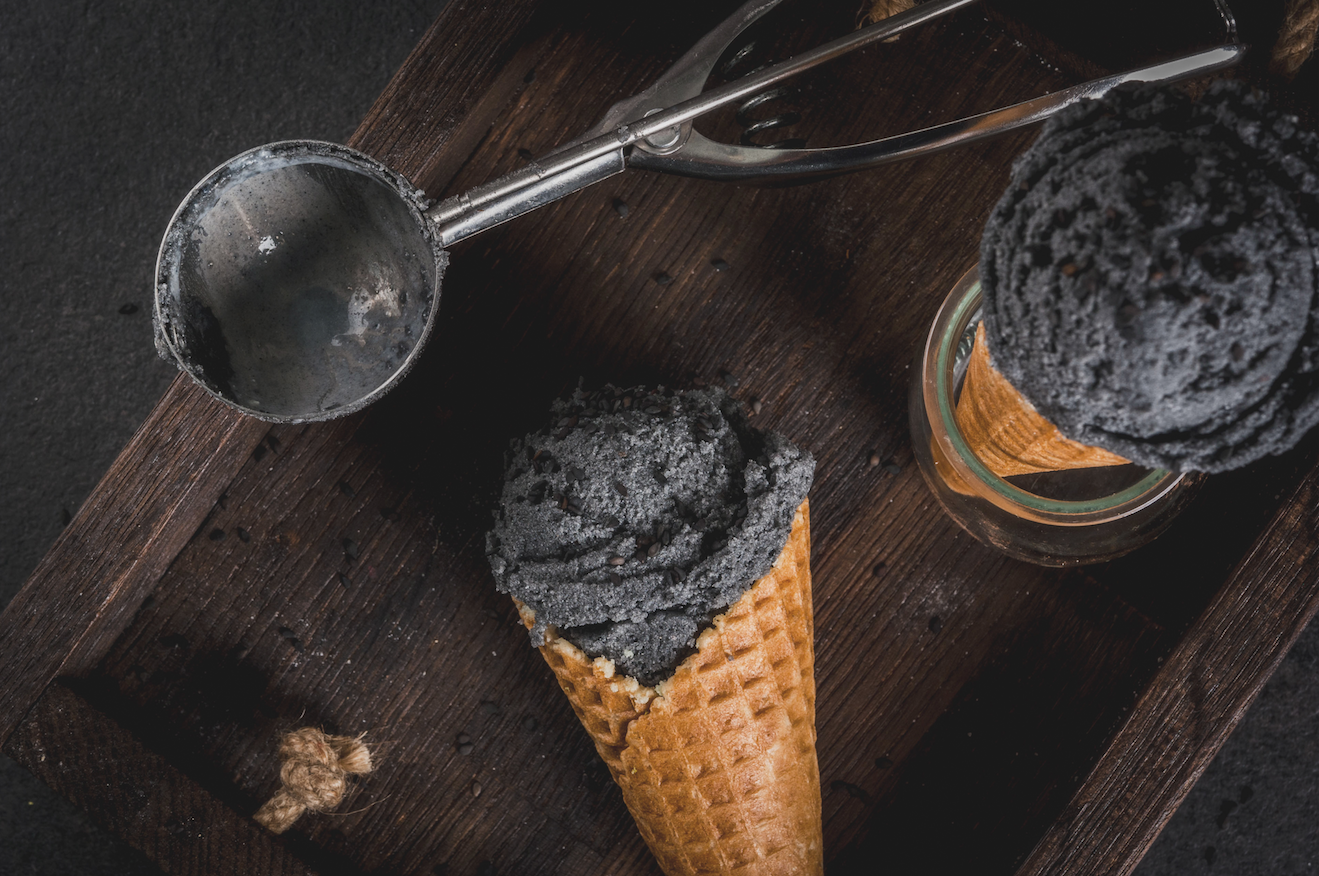From black lemonade to charcoal lattes, activated charcoal has become a trendy addition to the menus of cafes and juice bars. This “black magic” has gained popularity due to its purported detoxing abilities. However, does it really live up to its reputation?
What is it?
Activated charcoal is not the same as those briquettes we throw into the barbecue before a cookout. According to the Natural Medicines Database, activated charcoal is made from exposing wood, coconut shells or peat to high heat and then oxidizing it. The remaining powdery substance is almost entirely carbon. The pores have a large surface area, maximizing its ability to bind and absorb various chemicals or other substances to its surface. The product was originally designed for use in the medical field, where it is still used today. The powder can be ingested, usually in tablets or capsules, to bind toxic doses of drugs or other poisonous substances.
When ingested, the gastrointestinal tract does not absorb charcoal. Rather, it passes through and is eventually eliminated from the system. However, taking activated charcoal at home is not a substitute for visiting a doctor in case of an emergency. “If someone ingests a potentially harmful substance or chemical at home, they would need close monitoring in the hospital,” Dr. Kiona Subramanian, a local integrative and functional medicine physician, said. “Taking activated charcoal without seeking medical attention would be dangerous.”
Ingestion of activated charcoal
So, what is with the common practice of adding charcoal powder to smoothies and juices or just popping a capsule of the stuff? Some claim the powder has the ability to banish bloat and help detox the body of pesticides and other chemicals we may be exposed to through our diet or in everyday life. However, though charcoal has a large capacity to absorb substances, just as it can absorb poisons and drugs, it can also bind to nutrients, preventing the body from absorbing and utilizing them. So, if you are adding a dose of activated charcoal to your green juice, you are likely not absorbing the vitamins and minerals in your beverage. “Activated charcoal is a risky supplement,” said Dr. Subramanian, “especially if taken long term as it prevents absorption of nutrients and medications.” For this reason, people taking prescription medication in particular should take caution with charcoal.
Not only does the charcoal bind nutrients, but it also causes constipation, an unpleasant side effect that is counterproductive of charcoal’s detox claim. Our liver does a pretty amazing job ridding the body of toxins and waste products through multiple detox pathways. The best thing we can do for our bodies to expedite this detox process is fuel it with a nutrient and antioxidant rich diet, exercise, and avoid environmental exposures to toxins.
What about the claims to reduce bloating? In terms of excess gas in the intestine and the subsequent abdominal distension (bloating) and pain associated with it, taking charcoal is thought to absorb gas to reduce bloating in acute episodes. There is mixed evidence as to the reliability of charcoal in reducing intestinal gas. An older 1981 study in the American Journal of Gastroenterology showed it was effective in reducing the number of flatus (gas) passed. However, a 1999 study in the same journal failed to see the benefits.
It appears there is some anecdotal evidence to support the use of activated charcoal for gas, so it may depend on the individual. Take note that you will experience a darker color stool as well as some constipation after taking activated charcoal. According to the Natural Medicines Database, activated charcoal is likely safe for acute issues, however if excess gas and bloating is a chronic issue, it would be wise to see a doctor to investigate the root cause of intestinal distress.
Oral Care
Many people have started to use activated charcoal to brighten and whiten teeth. Some natural toothpaste companies have started adding charcoal powder to their products. However, you can simply break open a capsule at home, sprinkle it on a wet toothbrush and brush your teeth as a whitening treatment. Due to its absorptive capacity, the charcoal binds and removes stains on the teeth. Often the stains on teeth are a result of tannins from drinking wine, coffee or tea. Consult with your dentist before making this a regular part of your oral hygiene routine!
Related articles:
Find Out Why You Should Try Water Aerobics
’31 Nights Of Halloween’ Isn’t Just For Kids… View This Year’s Movie List
SIMEDHealth Get Awarded To Conduct COVID-19 Research Studies
View Ben Hill Griffin Stadium’s New Hours For The Fall

